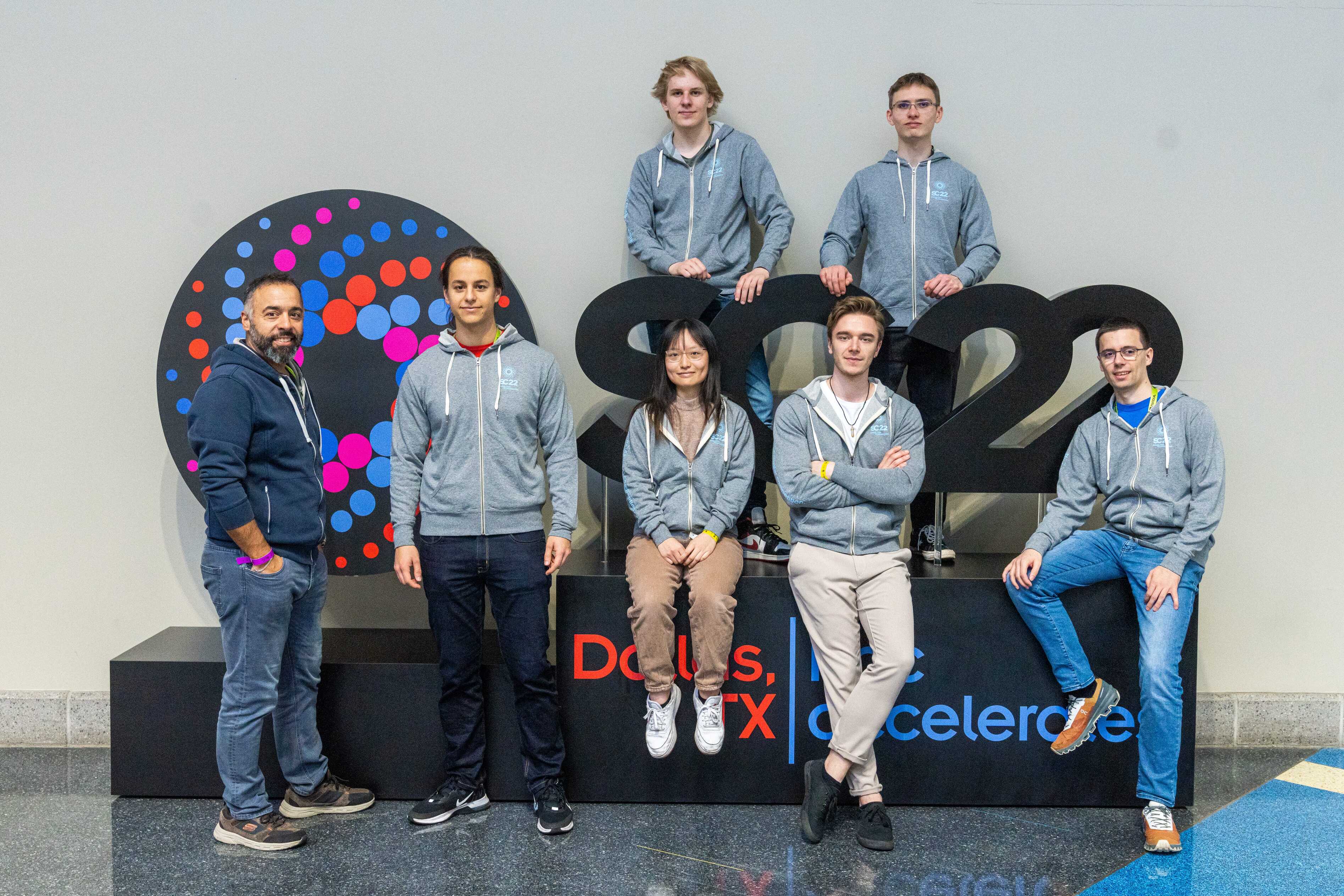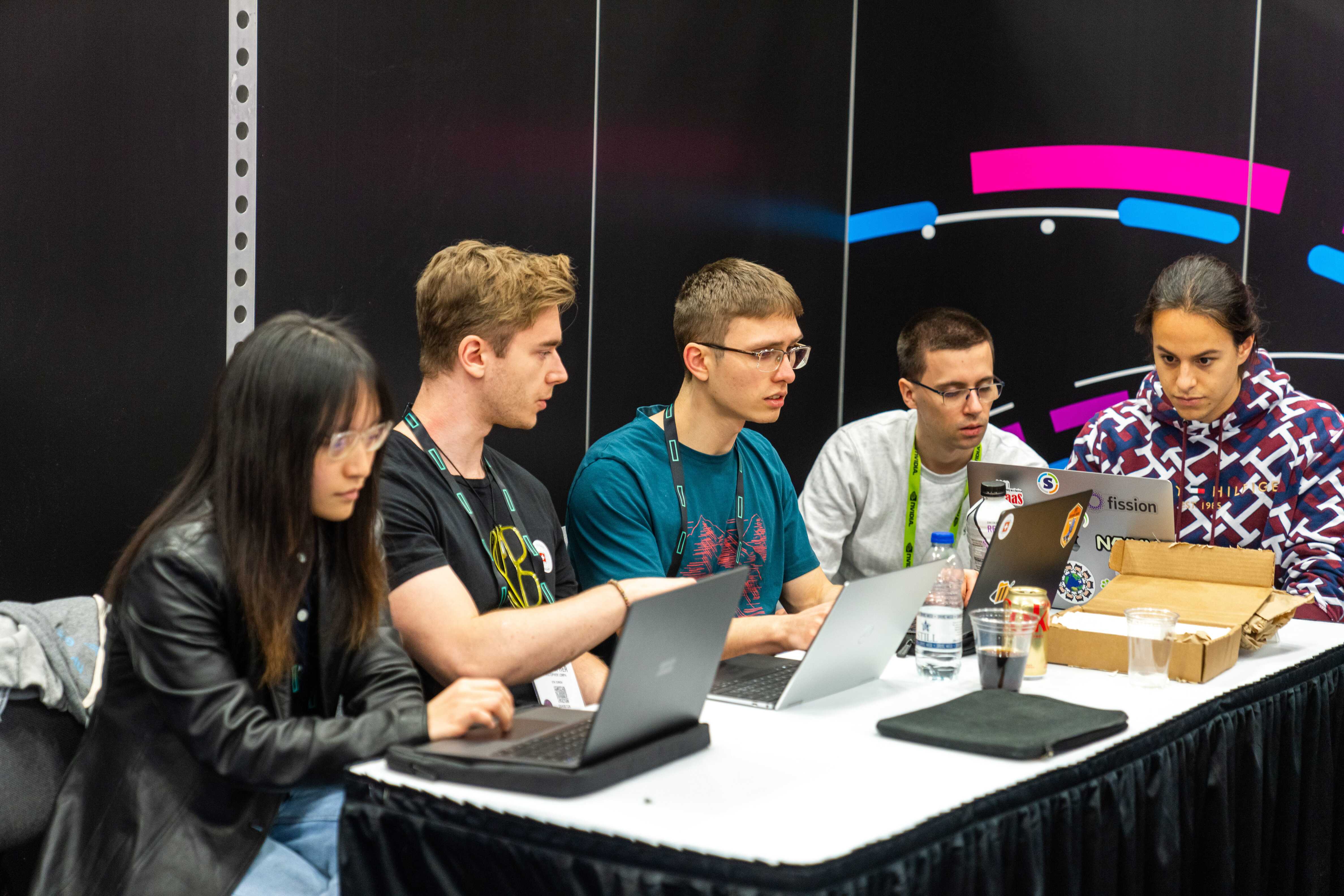Experience Report on SC22
A report about the routines of the competition
12/1/2022 | You Wu
Flight to the US
After a long journey from Zürich with transit in London, we finally arrived in Dallas for the SC22 student cluster competition. This was the moment for which we have been waiting and preparing for a lot in the past few months.

Cluster set-up & Preparation
From Saturday evening (Nov. 12th) after our arrival to Sunday (Nov. 13th), we were able to set up our clusters and do some necessary preparations for the competition.
Benchmarking
On Monday (Nov. 14th), the benchmarking session took place from 09:00 AM to 05:30 PM. During this phase, only the student team members were allowed in the team booths and by the end of the session, the results of the benchmarking had to be submitted.
After this session, no further changes to hardware configuration and reboots were allowed.
Competition
After the competition kick-off at 8:00 PM on Monday (Nov. 14th), we got to work on our responsible parts which were assigned before the competition.
The tasks for the applications were not easy for most of the teams due to a lot of scientific background knowledge involved. These aspects were also later examined in the application judging session which took place on the last day of the competition. We also started to look into the mystery application of this year, Seissol.

During the competition, we had to put an eye on the power monitoring of the clusters, as the newly applied rules require us to ensure the power does not exceed a dynamic power limit. According to the rules, the power limit shall range from 1.5 kW to 4.0 kW. Based on our experiences, the upper bound was mostly around 2.5 - 3.0 kW during the competition phase.
Since the competition is non-stop for 48 hours straight, we also organized several short team meetings to make sure everyone gets enough sleep and food supply, as well as having a good scheduling of the jobs so that we do not run things simultaneously and interrupt each other.
Overall
Our most notable achievements include very high scores for the reproducibility challenge and the CFD application PHASTA, as well as the best raw results for LAMMPS. Due to some set-up issues of the submission link, the submission of the LAMMPS was not accepted by the committee, but the results were highly recognized by the designer of the application.
In all, our team placed 4th overall in the highly concurrent competition in Dallas. It was a mixed feeling for most of our members, but most importantly it was a great experience where each of us learned a lot.